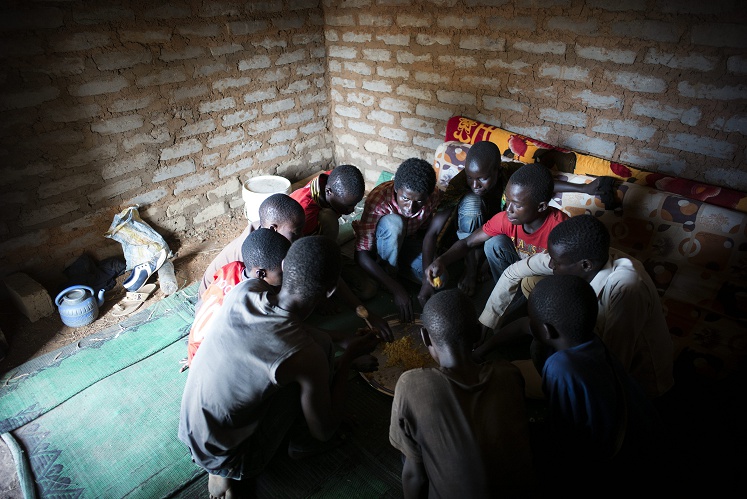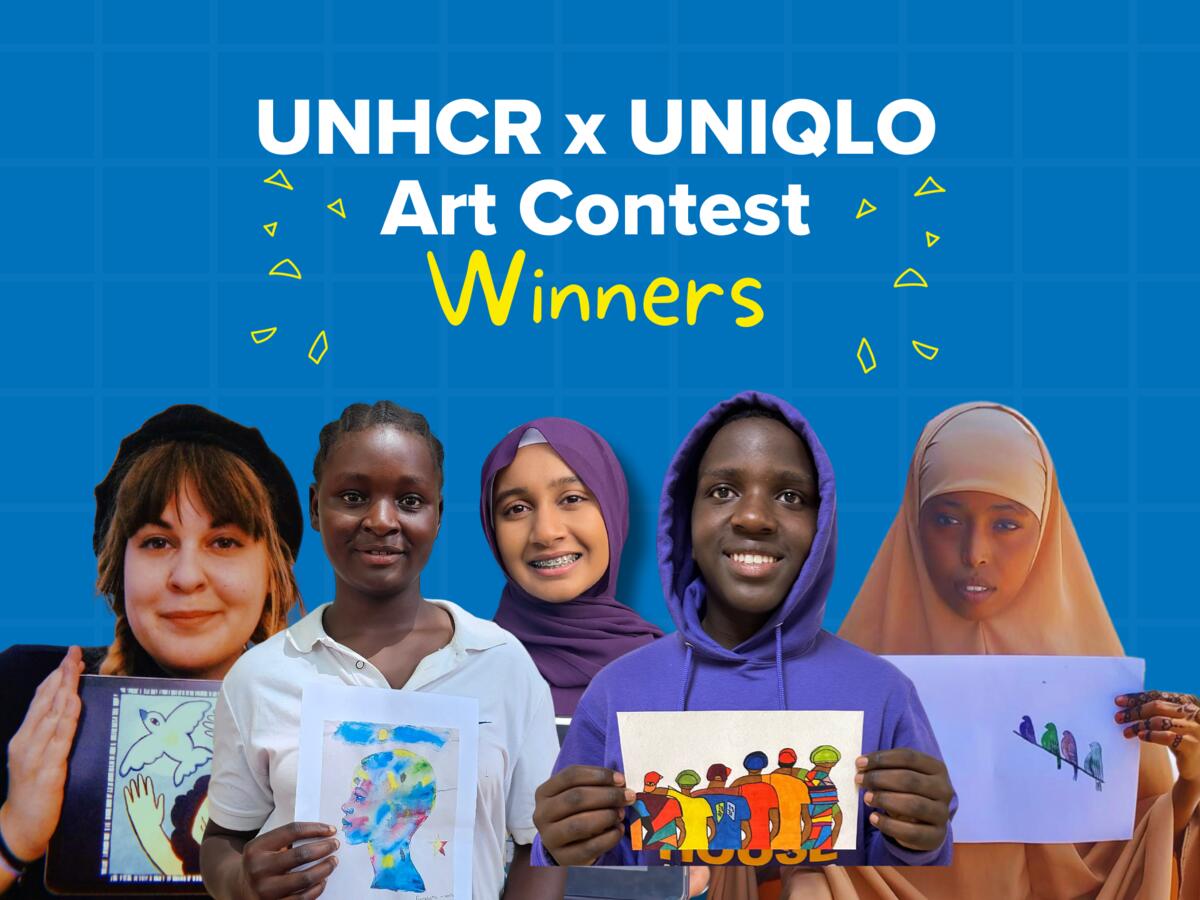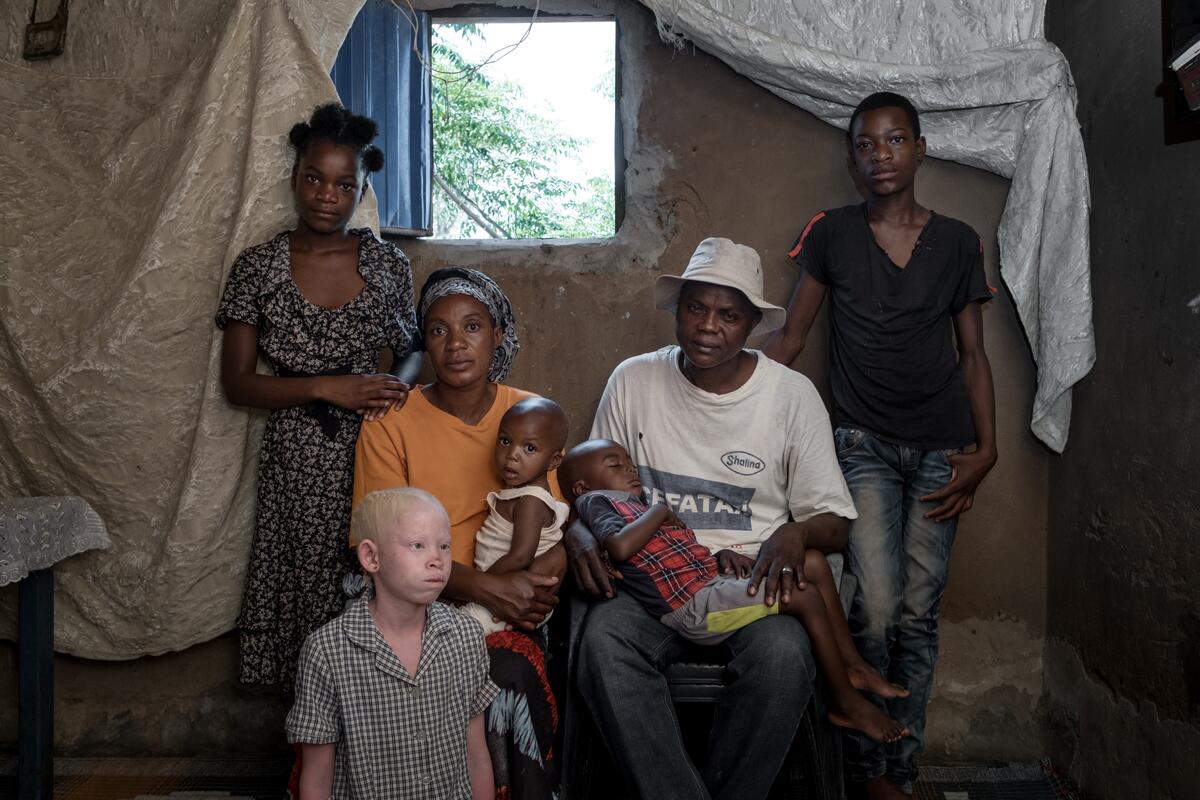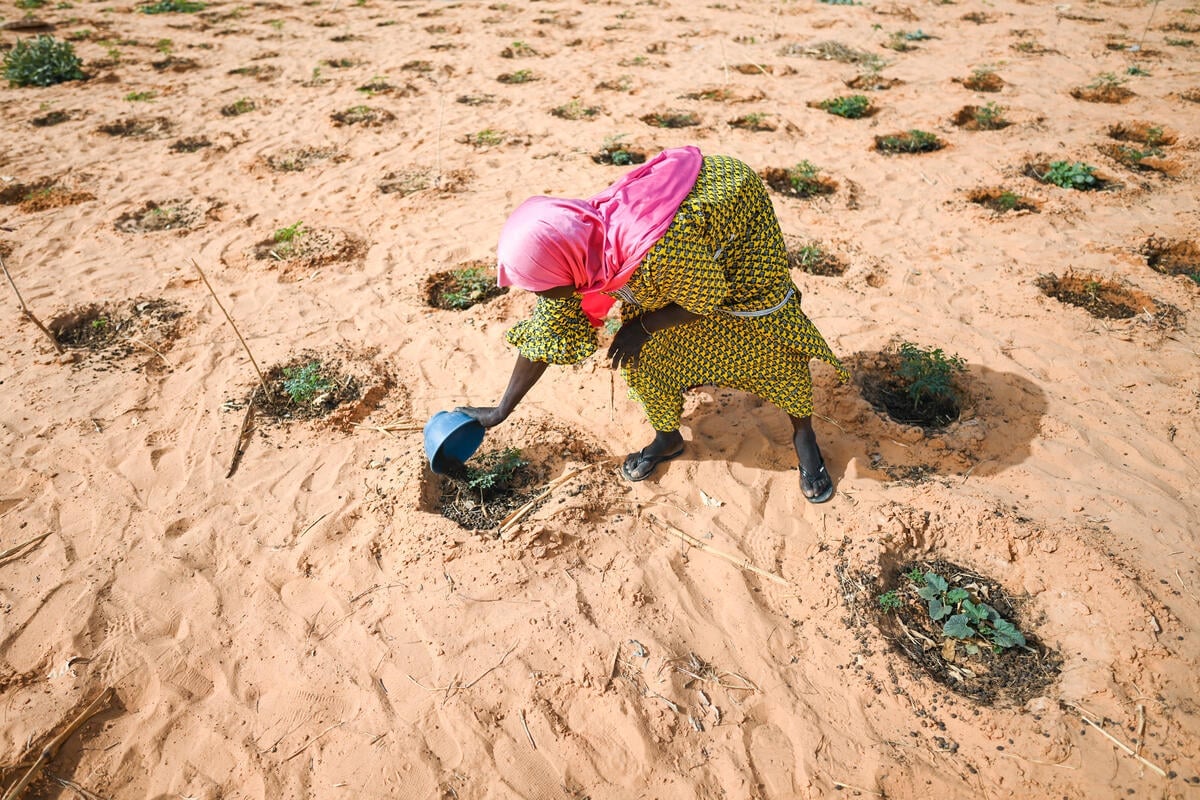Brothers in Resilience

Brothers in Resilience
The subdued colours of Chad fill a deserted playground. Exhausted by the heat, most pupils have taken leave. Yet a voice rises through the glassless windows.
"Will you answer me?" the French teacher asks sternly. "Whatever is the matter with you? Lunchtime approaches, but you already ate this morning!"
There is an uproar in the classroom.
"What? You did not? How many meals do you have a day?"
Amir*, 14, exchanges a knowing glance with his classmate Raoul before replying: "No, Monsieur. At best we eat twice a day."
"But that's seldom, often we don't eat at all!" adds Raoul.
The teacher collects the chalks. "Fair enough, then. Bon appétit!"
Notepads vanish into bags. Amir and his buddy rush to their bicycles. They pedal the seven kilometres back to Dosseye camp in southern Chad. These young refugees from the Central African Republic (CAR) are more than just friends. Both were separated from their parents a year earlier, during the armed conflict in their home country. In exile, they have recreated a family along with 10 other teenage boys, aged 13 to 17. All of them orphaned or separated from their parents, they help each other face life as a refugee.
Upon arrival at home, 10 cabins at the edge of the site, the pot simmers. Ahmat, 16, is at work with headphones on. "Today we will have lunch!" rejoices Amir, who hasn't had a bite for the last 24 hours. "Without food it's hard to concentrate on studies." On the menu is sorghum pasta. "When we arrived here, we had never tasted that before," Amir explains. We didn't know we had to thresh the grains to remove the sheath before grinding and cooking. We just boiled it and ate it and got very sick!"
These teenagers grew up in Bangui, CAR's capital, with modern comforts like the Internet. Today, they live in the bush, raise chickens or try their luck as masons. Neighbours and friends help them to adapt, and a protection officer from UNHCR gives them advice.
"Without food, it's hard to concentrate on studies."
But in these harsh conditions, these youngsters still need to rely on each other to survive. With that challenge in mind, they have set rules. Four teams of three have been created and each day they take turns to do the chores: collecting wood, fetching water, cooking and cleaning. Punishments for lapses have been established, but "have never been implemented", Amir says with a laugh.
The monthly food allowances distributed by the World Food Programme (150g of sorghum, 50g of peas, 15g of oil and 20g of corn-soya blend) are pooled and rationed. "The food is supposed to last for four weeks," Amir says. "But after 20 days it's usually all gone. And we must make do." That means fast or rely on the generosity of neighbours. But for now, the meal is ready. The group gathers in a circle and pounce on their plates.
The boys' friendship was forged between December 2013 and January 2014, following their arrival in the Chadian capital, N'Djamena. It was during this time, when violence was at its peak in Bangui, militias roamed the city terrorizing Amir's community. The son of a Christian mother, he is a Muslim, like his father.
During the fighting, it was Amir's mother who saved his life.
"Armed men were looking for me," he explains. "They wanted to search our home. My mom stopped them and hid me behind a door." Once safe, she instructed him to escape from the house. Amir did, but soon after, his mother found him and decided that he would only be truly safe if he left the county. She handed him to Chadian soldiers who had come to evacuate their nationals. "Take my son! I'll come to look for him . . . " Amir mutters, nervously scratching the earth, as he recalls his last moments seeing his mother. Under the protection of the military, "I saw the killings," he recounts, choking with emotion. He was transferred to the airport. Women and children were expatriated on planes chartered by the International Organisation for Migration and the Chadian Government. Amir has never seen his mother again. "I hope that at least she is not . . . "
In N'Djamena, he was placed with 32 unaccompanied children at centres run by the Ministry of Social Action. Some share Amir's anguish; others have witnessed the death of their relatives. "My father was slashed with a machete," mumbles Moussa, 17, the eldest of the group. In these orphanages, living conditions are harsh, but these hardships welded the group together. When the government decided to transfer the refugees to the sites, "UNHCR offered us a choice: either to place us separately with foster families or to stay together," explains Moussa, freshly appointed by the boys as their leader. None hesitated.
"Only by having an education will we manage to build a future."
In October 2014, they were directed to the Dosseye site, less than 80 kilometres from the Central African Republic border. More than 21,500 people live there under tarps or in cabins as of December 2014. Conditions were such a shock that nineteen of the initial 33 teenagers, immediately decided to return to N'Djamena.
"Our hope is to be able to study," says Amir reminding himself why he made a different choice. "Here at least we can go to school. UNHCR has even given us bikes to ride there. Only by having an education will we manage to build a future."

But in order to build a future, these teenagers must first learn to accept the traumatic events that they have witnessed. They are aware of that and meet every Sunday.
"We discuss organisational problems . . . " says Moussa. "And we talk about Central Africa. It drives us crazy, yet it's beneficial. We must manage to leave that behind."
Amir adds: "In the evenings too we speak about the past. It helps us forget. During the day our minds are busy with school, and that calms us."
More than anything, these young people dream. They imagine themselves as engineers, football players or high officials in a faraway country.

Until then, the uprooted kids follow a tight routine. "We get up at 6 a.m. and we study from 7 a.m. till 2 p.m. Next, if we have any food, we do lunch. Then we may play football till 5 p.m. and after that we do our homework." In between, they perform their prayers. Faith gives them comfort. Their daily routine affords them a sense of stability.
Some cling to the hope of finding their loved ones. The 12 are among 450,000 refugees from CAR, scattered throughout the Democratic Republic of the Congo, the Republic of the Congo, Cameroon and Chad. This doesn't include 435,300 people displaced within CAR.
"I don't want these young villains lurking in the camp."
When thoughts of the scale of the crisis enter his mind, Amir sometimes visits, Mariana, 63 – the group's adoptive grandmother. Mariana, who is waiting to hear the fate of several of her grandchildren, also cares for Halimé, 13, who found refuge in Dosseye all by herself.
"Whenever I'm sad or distressed, I come here," confides Amir. "Mariana helps us, she listens to us."
Mariana seems pleased to be able to help the youths."I don't want these young villains lurking in the camp," she says. "I encourage them to study and not to think about their missing relatives. They must look to the future."
These boys are becoming adults before their time. "I was short when I arrived, but I think that I'm tall now," muses Amir at the sight of his stretched jeans. Their strength lies in their jealously kept friendship. So as not to turn away from each other, they have vowed never to fall in love. They'd much rather concentrate on studying in order to procure a job that matches their dreams. "That's the life of a refugee," exclaims Amir as he kicks a pebble. "But one day it will end up in freedom."
* Names changed for protection reasons.


















